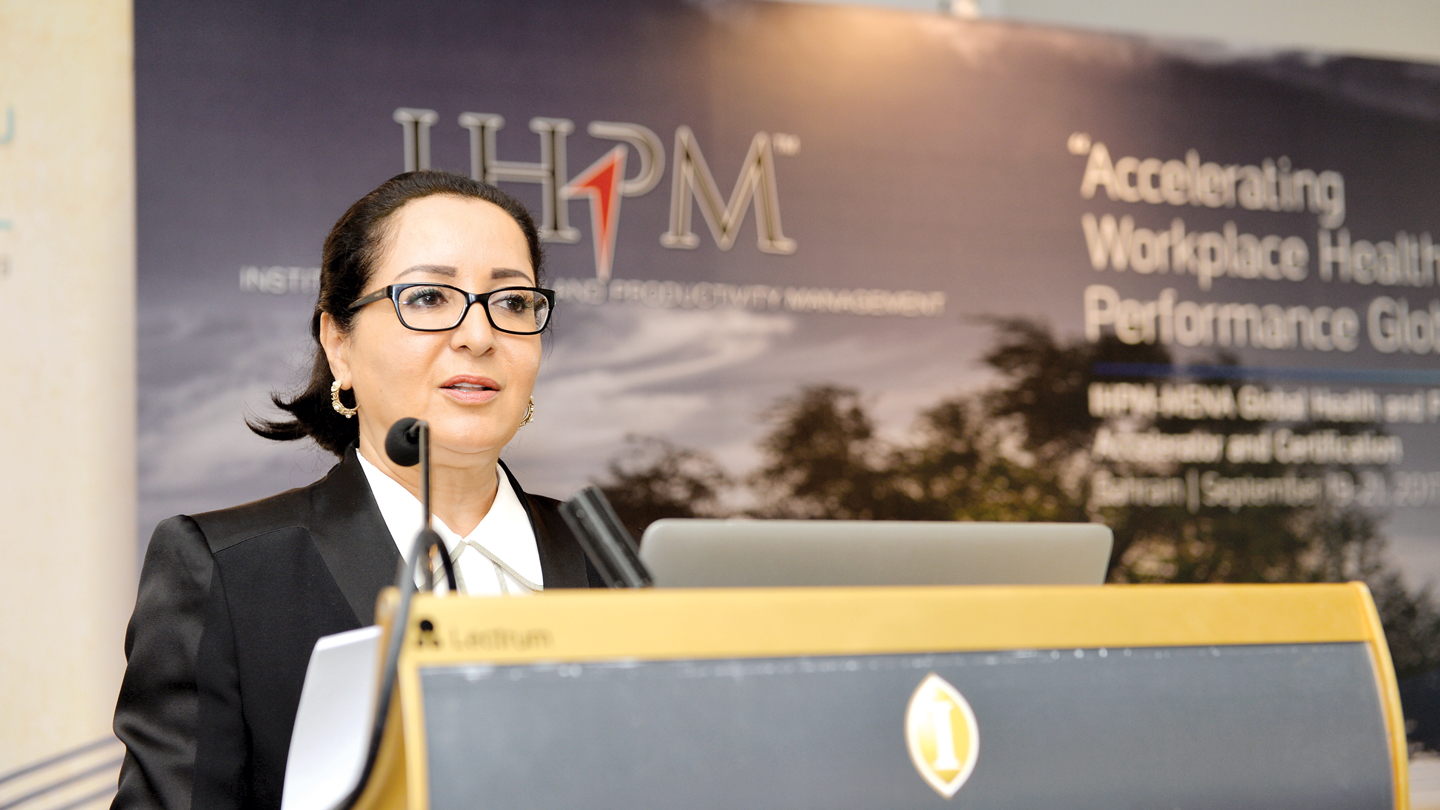Workforce well-being investment highlighted

Huda Al-Ghoson, executive director of Human Resources at Saudi Aramco, speaks about the importance of employee well-being in the success of organisations.
From across the Gulf Cooperation Council, well-being practitioners gathered in Bahrain last week to discuss the benefits of investing in the well-being of employees, on the theme of “Accelerating Workplace Health and Performance Globally.” The event was organized by the Institution for Health, Productivity and Management Middle East and North Africa Chapter (IHPM-MENA) with Saudi Aramco serving as one of the event sponsors.
The importance of well-being
In her keynote speech, Huda M. Al-Ghoson, executive director of Human Resources with Saudi Aramco, spoke about the important role that well-being plays in the success of organizations. Within the current dynamic landscape, an engaged workforce is the main factor in companies achieving a competitive advantage, said Al-Ghoson.
Numerous scientific studies consistently show that the well-being of employees directly impacts the performance of companies, said Al-Ghoson — a founding member of the IHPM-MENA Chapter. Organizations that invest in the health of their employees benefit from lower absenteeism and higher levels of productivity, she noted.
“As an HR professional, I have seen first-hand the positive effects of healthy work practices on profitability and productivity,” said Al-Ghoson.
Referencing American psychologist Abraham Maslow’s Hierarchy of Needs theory, Al-Ghoson said organizations need to provide for the physical and basic needs of the workforce to enable employees to take on responsibility and innovation. When employees excel within a healthy workplace and pursue self-actualization, they can immensely assist in the organization achieving its business goals, she said.
Health makes financial sense
Although the losses resulting from low productivity are high, Al-Ghoson pointed out that the costs incurred from covering the medical insurance of an unhealthy workforce can be quite prohibitive. Considering the trend in medical care expenses, she added, those costs will only go up.
“Investing in the workforce health is not just a nice thing to do, but actually makes economic sense,” she said. In addition to the financial returns, programs promoting a healthy lifestyle can transform employees into well-being ambassadors to spur a vibrant and productive society, she said.
Employees can model and demonstrate healthy behavior to family and friends, influencing members of society to adapt an active lifestyle.
“When we create alignment between physical, emotional, and mental well-being, we can create happiness, harmony, and peace,” said Al-Ghoson.
Harnessing the power of big data
Saudi Aramco launched its own wellness program and policy in 2005.
In 2015, this program then evolved into a new strategic business driver known as Human Energy Management. Samantha J. Horseman of the Saudi Aramco Human Energy Management team highlighted accelerating the company’s investment in employees’ well-being through leadership and innovation, in a morning session on the first day of the three-day event.
Horseman said Saudi Aramco is conducting cutting-edge research on collecting and analyzing data to highlight the association between an investment in health and the productivity of employees, Organizational Health, and Healthy Human Capital.
Additionally, the company is developing technology that can uncover human–machine patterns of human behavior through machine learning and predictive analytics. She also talked about the company’s endeavor to harness the power of big data and deploy artificial intelligence, with an overlying goal of empowering employees to pursue a healthier productive lifestyle, through preventing illness and injuries on the job.
“It makes sense to prevent illness,” Horseman said. “Why have all that suffering and pain if it can all be avoided through leveraging technology?.”
The first day of the event featured a number of international thought leaders in well-being who highlighted some of the latest research and best practices as well as case studies. The final two days of the event were dedicated for certification training from the Health and Productivity Management Academy, which was offered for the first time in the Middle East.
Media contact information
All media enquiries are handled by Aramco’s Media Communications & Coordination Department, Dhahran, Saudi Arabia.
For media inquiries, please email us at media.inquiries@aramco.com

